Textile Recycling Films Polymers 09-11-2021 - Arhive
Textile Recycling Films Polymers
Crude Oil Prices Trend
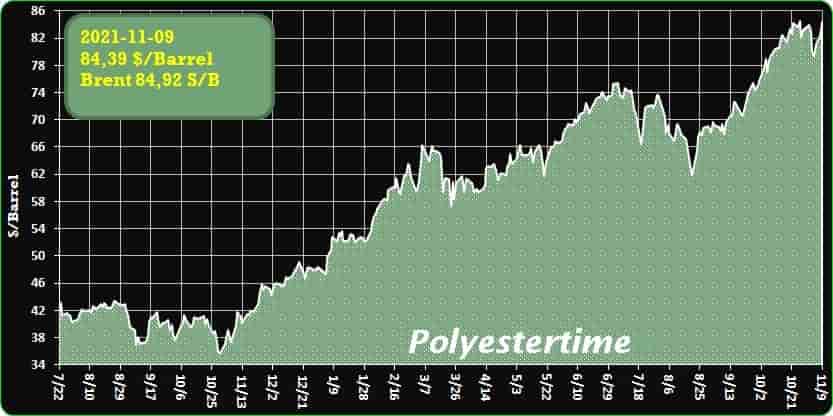
-Coca-Cola Africa – Kenya Accelerates PET Collection And Recycling Agenda.
Coca-Cola Beverages Africa Kenya continues to drive its sustainability agenda of recycling PET through PETCO Kenya and other programmes like waste segregation at source initiatives.
Our vision of a World Without Waste has shown positive trends in collection and recycling, currently trending at almost double the 72 percent achieved in 2020.
CCBA Kenya Public Affairs and Communications Director Susan Maingi said the company had achieved this exceptional recycling performance by helping to create a circular economy for plastic waste through accelerated collection efforts and buy-back centres, creating value for plastic waste and incentivising people to collect and return it.
“Building a circular green economy enables recycling and draws in communities and other stakeholders in a collaborative effort, creating sustainable employment at grassroots level and helping to solve the world’s plastic waste problem at the same time,” said Susan.
“At CCBA, we are a proud industry leader in developing increasingly sustainable ways to manufacture, distribute and sell our products.
“Our aim is to create greater shared opportunity for the business and the communities we serve across the value-chain.”
CCBA has made its ambitious recycling targets a top business priority, alongside key performance metrics for growth and profitability. This is in line with the Coca-Cola system’s vision of a World Without Waste and commitment to help collect for recycling a bottle or can for every one it sells by 2030.
Coca-Cola has also set a target to make all its consumer packaging 100% recyclable globally by 2025 and to use at least 50% recycled material in its packaging by 2030.
Coca-Cola Beverages Africa in Kenya continues to support the segregation of waste at source in malls, residential areas and marketplaces by providing collection bins and linking these with a recycling partner.
In Nyayo Estate Embakasi with about 5000 households, in partnership with the Nyayo Embakasi Residents Association (NERA), the company provided mesh bins and gunny bags for residents to separate plastic waste, while driving awareness of the circular economy for PET.
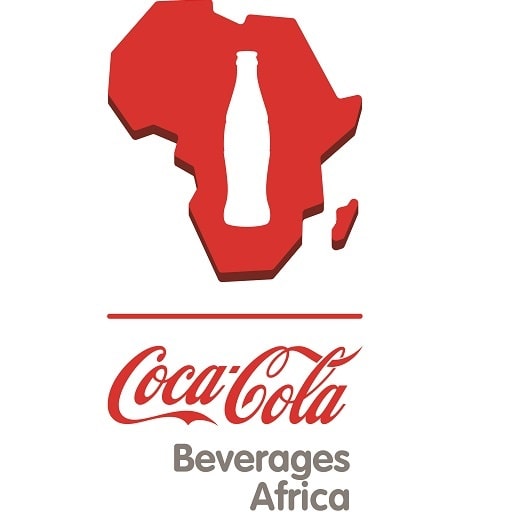
-Northern Europe’s first textile recycling centre opens in Finland
It will process 10% of the country’s annual textile waste
On 2 November, Northern Europe’s first recycling centre for discarded textiles officially opened its doors. Located in the Green Field Hub area in Paimio, the facility brings together the textile recycling company Rester and the waste firm Lounais-Suomen Jätehuolto Oy (LSJH) under one roof to refine textiles into recycled fibres.
In a press release, one of the partners explains the duties of each company, noting that Rester will handle the discarded textiles of companies, whereas LSJH will be responsible for the textile waste of households. According to the two firms, the facility will have the capacity to process 10% of Finland’s annual textile waste.
Converting textile waste into fibres
Paimio’s facility will help reduce waste as it will now convert discarded textiles into recycled raw materials from which many products can be made. Giving a few examples, LSJH reports that companies can produce yarn, insulation, filter cloths, etc. It follows then that both Rester and LSJH are urging companies to get involved and understand the processing possibilities of recycled fibres.
“As environmental issues become more topical and regulations in the EU are tightened, it is in the producers’ interest to switch to the use of recycled materials to a large extent. Thanks to the active collaboration between the partners, we can immediately influence the materials’ circular economic share. It is rewarding to be able to participate and use a material that has previously been classified as waste, as a high-quality raw material,” commented Rester’s CEO Outi Luukko.
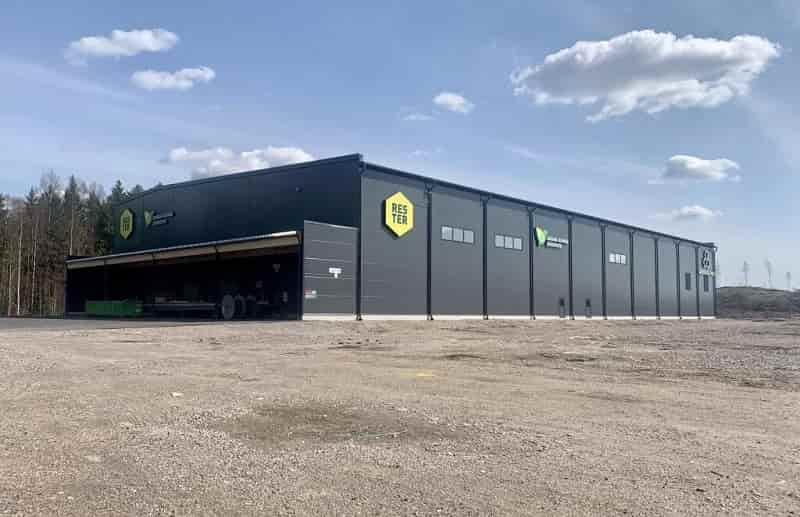
-SABIC’s Wilton, UK cracker to restart after £850m investment, could run on hydrogen
Saudi petrochemicals major SABIC is to restart its Wilton, UK steam cracker after an £850m investment, the company and the local mayor said on Thursday.
The Teesside facility, known as Olefins 6, has an ethylene production capacity of 865,000 tonnes/year.
The company would not disclose when it plans to restart the cracker. According to media reports, that would be in 2022.
The cracker was shut down in September 2020 for planned maintenance which had been scheduled for Spring 2020. Textile Recycling Films Polymers
The £850m overhaul will have two phases, SABIC said, with the first phase expected to reduce carbon emissions from the production site by 60%.
While the local mayor’s office said the company would “convert it [the steam cracker] to run on hydrogen”, SABIC officially only spoke of a feasibility study in the second phase of the overhaul to look into that possibility.
“The conversion would also aid the Government’s green energy ambitions, as hydrogen is a natural by-product of the cracking process,” said the mayor’s office.
NO MORE SPECULATION
Questions regarding the future of the site arose when the company announced in October 2020 that it had begun preparations to permanently shut some of the Wilton assets while “opportunities were explored to strengthen” the Teesside site.
The cracker, which also has the capacity to produce 415,000 tonnes/year of propylene, has been offline ever since.
For months, sources have suggested that the cracker would either not be brought back online or that it could be back in operation by 2023.
The butadiene (BD) extraction unit at the site was also taken offline in September 2020, and sources widely expect it to be one of the units to have been permanently shut down.
Aside from the cracker and BD unit, SABIC operates a low-density polyethylene (LDPE) production facility at Wilton, a more recent addition to the complex.
The local Member of Parliament (MP) in the UK’s House of Commons said the investments by SABIC would secure jobs for decades.
“This is genuinely fantastic news for Wilton Site and for the wider Teesside Industrial Cluster … Hundreds of millions of pounds invested in the site, a secure future for decades to come, and creating and protecting over 1000 jobs,” said Jacob Young.
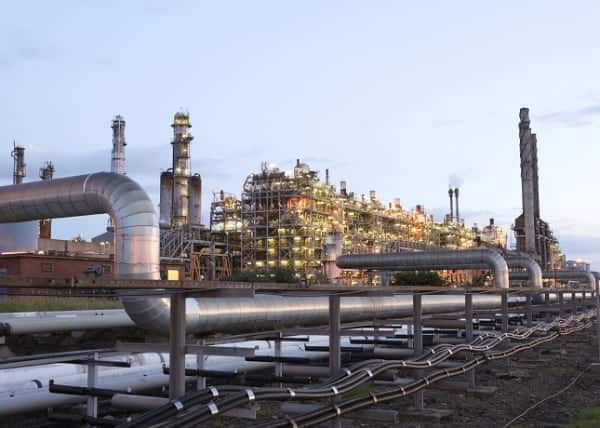
-How the role of waste and recycling companies will change as the circular economy grows
The circular economy will be disruptive to the current business models of waste and recycling companies while also providing new opportunities for sustainable growth.
Change is coming. Textile Recycling Films Polymers
We are moving from a linear economy based on the principles of the ‘take-make-waste” approach to a circular economy based on the values of eliminating waste and pollution, recirculating products and materials (at their highest value) and regenerating nature.
The transition to a circular economy is being driven by global missions, such as mitigating climate change and protecting the earth’s finite resources and biodiversity.
The transition also is underpinned by emerging national and international policies and regulations, such as the European Union Circular Economy Action Plan, as well as by the global roll-out of policies such as extended producer responsibility (EPR).
In addition, initiatives by the private sector also are gaining momentum. Nearly 100 multinational companies signed the U.S. Plastic Pact, for example, pledging to make their plastic packaging either recyclable, reusable or compostable.
The direction of travel has been set, but the duration of the transition and final destination still must be worked out.
Like all change, the circular economy will be disruptive to the current business models of waste and recycling companies while also providing new opportunities for sustainable growth.
It is time now for waste and recycling companies to scan the horizon and plan how to best position themselves to exploit these emerging opportunities.
Change is opportunity
What is clear about the circular economy is that there will be less waste with the focus being on keeping resources in circulation and at their highest value.
The future is, therefore, about understanding, tracking and assigning resources at their highest value to where supply chains need them.
The circular economy is based on a strong integration of the value/supply chains as resource composition, quality and predictability gain in importance.
This means fundamental changes to the traditional business models of waste management companies.
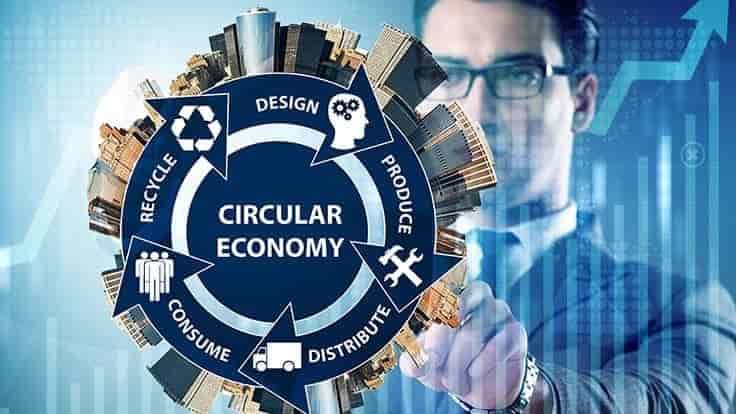
-US Trinseo to start sales process for styrenics businesses in Q1 ’22
Trinseo has started exploring the divestures of its styrenics businesses and plans to start a formal sales process in the first quarter of 2022, US-based engineered materials and latex binders producer said on Friday.
The scope of the sales process will include the company’s Feedstocks and Polystyrene segments as well as its 50% stake in the Americas Styrenics joint venture. Chevron Phillips Chemical owns the remaining stake in the joint venture.
The company had identified those three as targets for possible divestitures.
“The separation of the styrenics businesses would represent another key step in our transformation toward becoming a specialty materials and sustainable solutions provider,” said Frank Bozich, CEO. ” We will continue to prioritise investments in higher growth, higher margin and lower earnings volatility areas such as Engineered Materials and CASE with an ongoing focus on sustainability, including the continued decrease in our CO2 intensity through various initiatives including the transformation of our portfolio.”
CASE stands for coatings, adhesives, sealants and elastomers.
The company has been active on the M&A front. In September it acquired acrylic materials company Aristech Surfaces for $445m. In May, it completed its $1.36bn acquisition of Arkema’s polymethyl methacrylate (PMMA) business. On the divestiture side, it is selling its synthetic rubber business to Synthos for $491m in a deal expected to be completed in 2022. Textile Recycling Films Polymers
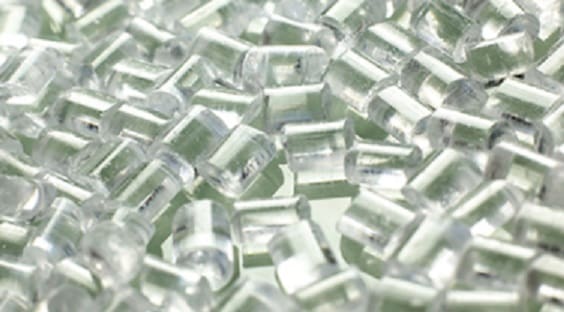
-RadiciGroup consolidates its presence in Australia
Agreement with Duromer for the sale on the Australian market of the entire range of technopolymers, also in view of the start-up of the new Chinese plant.
Duromer Sidney RadiciGroup’s High Performance Polymers division, through the Chinese subsidiary Radici Plastics Suzhou, has signed an agreement with Duromer for the distribution of the entire range of engineering plastics on the Australian market. Decision taken also in view of the start-up of the new factory in China, with a capacity of approximately 30 thousand tons per year (read article).
“We have been collaborating with Duromer for some years now – explains Alberto Sessolo, General Manager of Radici Plastics Suzhou -. We have worked well together and a relationship of great trust has been created which, by mutual agreement, we want to expand and make ever more synergistic. This is why we entrust Duromer with the distribution of our materials in Australia, certain of their leadership on the reference market and aware that, together, we will be able to do a good teamwork to be at the service of strategic sectors such as automotive, E / E, goods. of consumption and industrial goods “. Textile Recycling Films Polymers
Based in Sydney, Duromer Products has been operating for over thirty years in the distribution and compounding of technopolymers. It has a compound plant in Sydney and another in Ho Chi Minh City, Vietnam, where color and additive masterbatches are formulated.
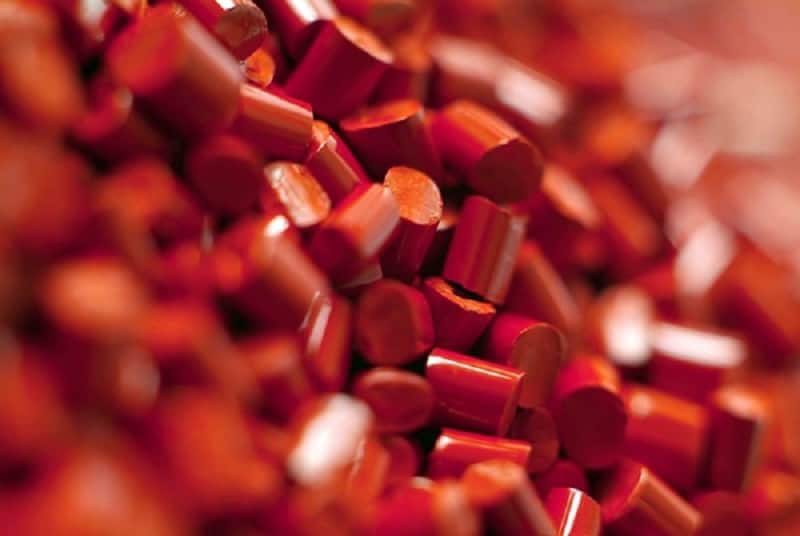
-UFlex commissions BOPET films plant in Nigeria
UFlex has commissioned its BOPET film manufacturing plant in the Ogun State of Nigeria with a production capacity of 45,000 tons per annum. Spread over 37 acres, the plant houses 10.6m BOPET film line in Africa and also has two metallizers with a total production of 15000 tons per annum. Textile Recycling Films Polymers
The plant created over 200 direct jobs and will meet the packaging film demand coming from the fast-growing economy of Nigeria, ECOWAS (Western Africa) and USA.
In Q2 2021, UFlex also added a fleet of new products to its portfolio.
Its Flexible Packaging business has launched a high barrier mono-material recyclable bag for Danish brand KIMS for its snacks packaging segment for the European market. The high-barrier packaging is made of mono-material under polypropylene extreme and bears recyclable ‘logo 5’ mark enabling easy recycling in the existing polypropylene recycling streams.
UFlex has developed a new MOPE/PE recyclable structure with registered matte coating and special PE mono-polymer based laminate film for EBRO rice brand Peacock. The newly developed structure possesses similar mechanical properties allowing easy recyclability of PE in conventional extruder and can be run on existing packaging line with minor adjustments. This development has cleared all tests related to handling, post filling of the pack content, and has successfully fulfilled required barrier properties throughout the defined shelf life of the packed rice.
The company has also developed a three-side sealed pouch packaging structure to pack Asal Coin Parota through use of a special high barrier PET film that increases the barrier properties by 50 percent under ambient conditions.
The manufacturer has developed two packaging sizes of 3kg and 12kg to pack pet food for the brand Fidele. Its packaging structure comprises specialized matte finished PET polyester and its pocket slider allows reclose-ability. The 3kg variant comes with side gusset handle and 12kg variant comes with bottom pinch pasting.
A transparent high-barrier laminate was developed to pack 26gms of Gold Standard Dairy Whitener for Namaste India Foods. The packaging comes with a see-through window and barriers required for packaged dairy Whitener.
The Cylinders business has started in-house manufacturing of Flexo KodakNX printing plates. Flexo KodakNX printing plates offer laser square spot exposure technology. Its plates offer flat top dots with no oxidation of polymer. These plates complement a variety of inks including water-based inks and solvent-free inks; and allow printing on all types of substrates.
Flex Films USA launched its patented BOPET high barrier film F-UHB-M, designed to replace aluminum foil in flexible packaging applications. F-UHB-M addresses challenges of relying on aluminum foil for packaging despite several of its limitations including material availability, high material cost, weak integrity, propensity for in-use pinhole formation and difficulty in recycling.
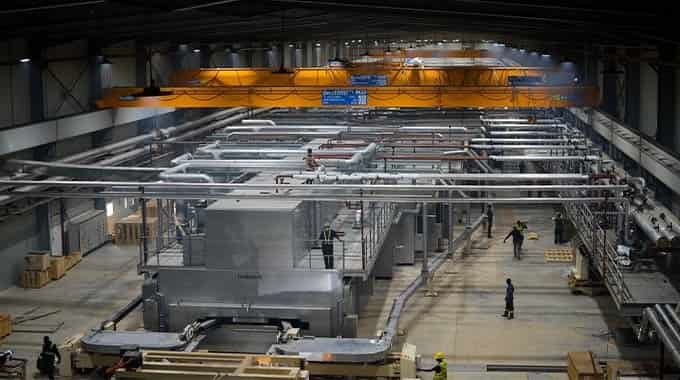
-Turkey’s textile manufacturing sector may feel impact of gas rate hike
Turkey’s textile manufacturing industry may feel the impact as the government recently raised the price of natural gas supplied to the industry and power plants by 48 per cent and 47 per cent respectively, as a global price spike drove up import bills. Consumer gas prices remain unchanged, the state-controlled BOTAS Petroleum Pipeline Corporation announced.
Inflation, which rose to 19.58 per cent in September—the highest since March 2019—may rise because of the decision, according to a newspaper report from Turkey.
Natural gas prices have by soared by around 280 per cent in Europe this year and by more than 100 per cent in the United States, pushing up winter fuel bills.
BOTAS, however, said in a statement that the high prices seen around the world were not reflected in the same proportion in Turkey. “All subscriber groups have been maximally protected,” the company said.
One of the largest gas importers in Europe, Turkey depends on pipeline gas from Russia, Azerbaijan and Iran as well as liquefied natural gas (LNG) imports from Nigeria, Algeria and spot markets.
The country’s purchasing managers index (PMI) for the manufacturing sector was 51.2 in October, down from 52.5 in September, according to fresh figures.
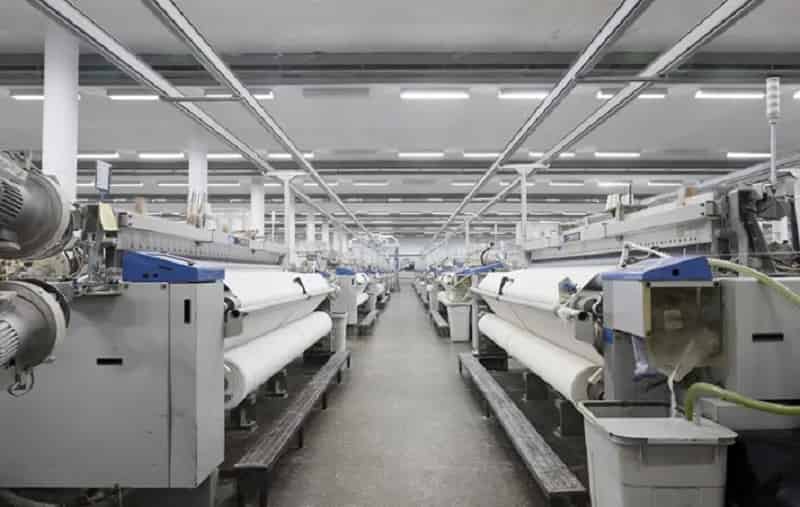
Textile Recycling Films Polymers
